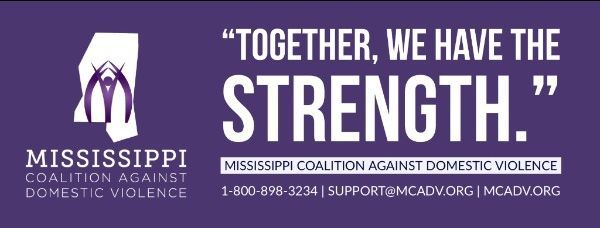
The year 2020 has been tough on many of us. Considering the state our world is in, with the coronavirus and the mistreatment of minorities, we are in fragile times. July is Minority Mental Health Awareness Month and it has rolled around at a time when we need to acknowledge and take care of our mental health. In 2008, the U.S. House of Representatives proclaimed July as Minority Mental Health Awareness Month to enhance public awareness of mental illness among minorities and to improve access to mental health treatment and services.
Destigmatizing mental illness is an ongoing fight within marginalized communities. Studies suggest that racial minority groups show higher levels of anxiety, depressions, suicidal tendencies, PTSD and other mental health disorders. The effects of racism and racial trauma can’t be ignored. African Americans of all ages are more likely to be victims of serious violent crime than whites, making them more likely to meet the criteria for PTSD. Lack of help and support or poor mental health care can lead to suicide among minority populations. Some minorities that have found themselves unemployed due to COVID-19 issues may now deal with anxiety, wondering how household needs will be met. Feelings of despair and hopelessness can lead to sudden waves of depression.
Studies have shown that some African American men and women are not very open to acknowledging psychological problems because of the stigma associated with mental illness. Research has found that some African American women, compared to White women, held stronger beliefs that family problems should not be discussed outside of the family*. Many cope with mental health problems by seeking help from church, family, friends or coworkers. Ethnically diverse women who survived domestic violence have used spirituality and religion to cope with the effects of abuse.
Our mental health affects us on a daily basis. If nurtured and maintained, it’s one of the core components that can lead to tranquility and happiness. Self-care is important, whether it is in the form of therapy or simply doing what makes you happy. If you are feeling distressed, you should find support or seek professional therapy. If someone you care about is in crisis, encourage them to seek help.
*African American Women’s Beliefs, Coping Behaviors, and Barriers to Seeking Mental Health Services
Helpful Links
Mental Health America
Dedicated a site full of resources ranging from self-help to self-screenings, finding health care providers, tips for starting conversations about mental health, exercises for combating negative thoughts, finding support groups and so much more.
National Suicide Prevention Lifeline – 1-800-273-TALK (8255)
The Lifeline provides 24/7, free and confidential support for people in distress, prevention and crisis resources for you or your loved ones, and best practices for professionals.
SAMSHA National Helpline
A confidential, free, 24-hour-a-day, 365-day-a-year, information service, in English and Spanish, for individuals and family members facing mental and/or substance use disorders. This service provides referrals to local treatment facilities, support groups, and community-based organizations.
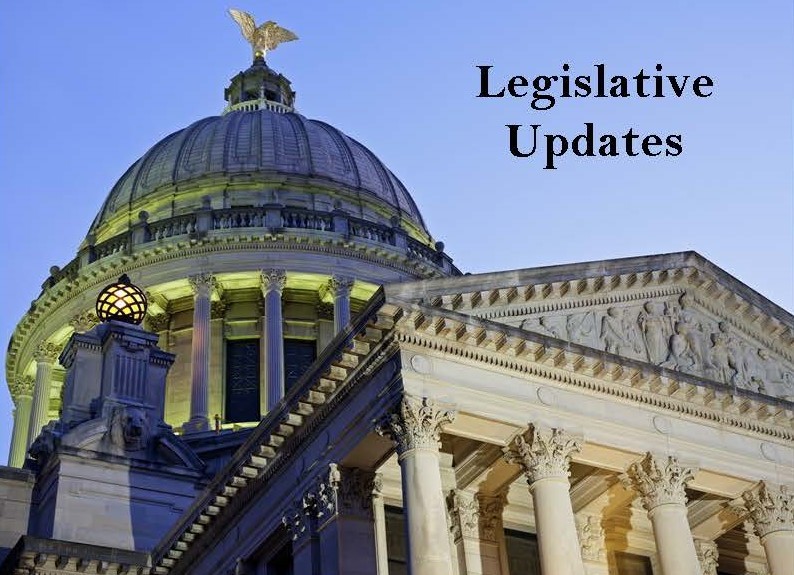
Mississippi’s Legislative Recap
This year Mississippi Legislators accomplished many historic policy changes throughout a very unpredictable session. Legislators fought and advocated for Medicaid expansion, small business assistance, criminal justice reform, pay raises for educators, changing of the state flag and much more. Throughout the 2020 Legislative Session Lawmakers experienced many deadline changes and extended recesses due to the Coronavirus Pandemic. Even during this time of uncertainty, Legislators were able to make Mississippians proud and begin the journey to a better Mississippi.
When this journey began in January, the State Capitol experienced a fresh wave of new lawmakers who were commissioned to make changes for the communities they represented. With new supporters, returning legislators were diligent in working together across party and chamber lines to bring forth new policy for Mississippians. With some changes in leadership and new members, the MS Legislature seemed to dance a new dance, but to the same tune. Early on, lawmakers authored legislation that would allow the request of tax reports from those who receive government assistance, require extensive questioning during abortion procedures, and implement a citizenship check for voters. Advocates across different disciplines expressed concerns about laws that would hinder Mississippians from receiving resources and increase discrimination in voting, health care and public assistance programs. Despite much deliberation and conversation, many of these bills would become law.
After a two month recess, Legislators returned to the State Capital to begin making decisions about the CARES Act spending and COVID-19 relief. While small businesses across the state received relief funds, some issues such as education, healthcare, and COVID-19 response, did not receive immediate attention. The Legislature decided to return to active legislation after the Memorial Day Holiday to continue advocacy for issues focused on in the beginning. With the deaths of black women and men across the country due to police brutality, lawmakers took the time to look into new issues like white supremacy, systemic racism, and other racial injustices in Mississippi. As Mississippians began to let their voices be heard, lawmakers listened and began the first step of healing by voting to remove the controversial confederate emblem from the state flag. Although lawmakers are experiencing another recess due to the pandemic, the work is not over. Legislators decided to extend the session indefinitely so that they can continue to handle issues throughout the year.
For MCADV, this year was momentous. We continued to advocate for legislation that would provide a victim-advocate confidentiality statute and we began our advocacy to remove the cash match requirement for state funding from the Mississippi Department of Health. Legislators opened their ears to Domestic Violence issues due to the increase in domestic violence calls during recent Stay At Home Orders and the realization of the danger victims and survivors experienced being mandated to stay home with abusers. Champions like Representative Dana McLean and Senator Sally Doty helped MCADV advocates urge lawmakers to provide victim advocate confidentiality to certified advocates who serve survivors and victims of domestic violence, sexual assault and human trafficking. House Bill 1386 became law on July 1, 2020 and will allow a safer, confidential approach to intake conversation and screenings. Although legislation was not passed to revise the DV Fund match requirements, we are still at work.
Throughout the off season, our policy team will strategize and make connections to build relationships for the 2021 Legislative Session. This time will also be used to advocate for national policy changes and create a State Agenda for Domestic Violence Survivors, Victims and Advocates. For more information about policy and advocacy email our Policy and Systems Coordinator robin.jackson@mcadv.org.
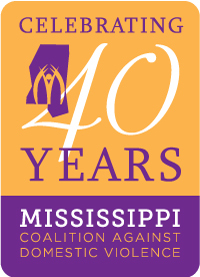
40 for 40 Campaign is Steadily Progressing Forward
MCADV’s 40 for 40 Campaign is still going strong. Our goal is to raise $40,000 so that we can better assist victims and survivors of domestic violence. Your contribution to our campaign is greatly needed and will make a difference in the fight against domestic violence in Mississippi.
A $40 donation will:
- Assist in making sure when a survivor calls, they get the help and resources needed.
- Support our efforts to bring awareness and educate the community about domestic violence.
- Underwrite trainings for advocates to increase the service delivery system for victims and survivors.
Your support in our 40 for 40 Campaign ensures that victims get the help and resources needed. To make your $40 donation click the button below. Be sure to put 40for40 in the notes.
Shelter Spotlight
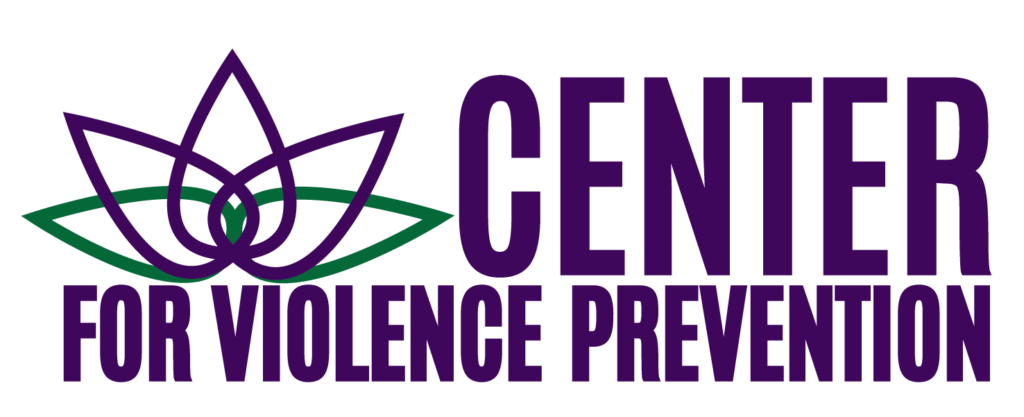
The Center for Violence Prevention (CVP) has been in operation since 1990 and serves Claiborne, Copiah, Hinds, Issaquena, Madison, Rankin, Sharkey, Simpson, Warren and Yazoo Counties for sexual and domestic violence. The program offers the only long-term restorative program and shelter to victims of human trafficking in Mississippi. Through their partnership with multiple community organizations and a committed staff focused on the needs of the victim of interpersonal violence, they advocate that every person has the right to a life free from violence. You can out for help through their hotline at 601-932-4198 or their social media platform.
Who They Are: CVP has several programs and services to help victims of domestic violence, sexual violence, and human trafficking, along with our offender program. Check out the below video for more information on CVP and what they do!
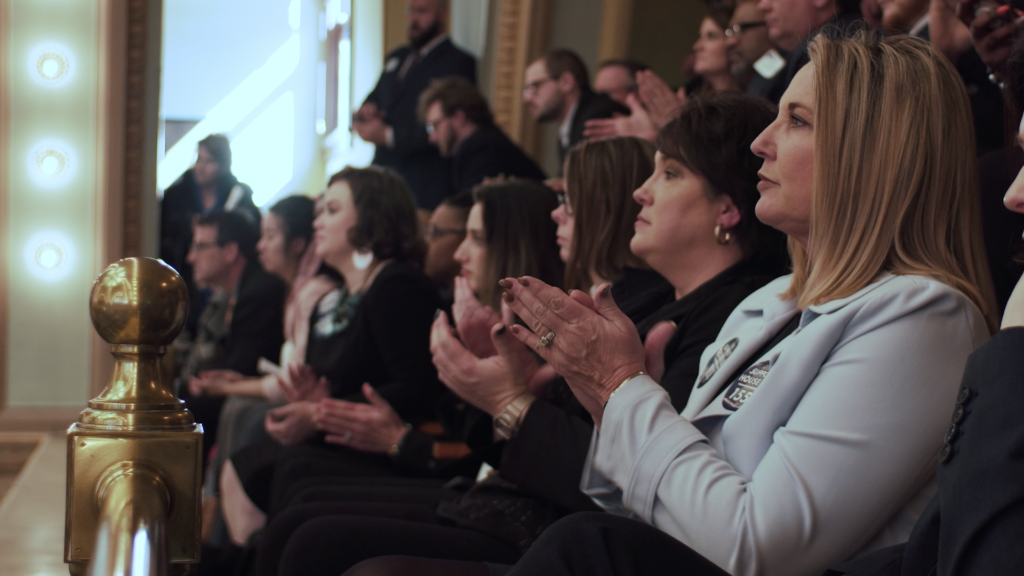
Tower Testimonials: The women depicted in the below video are real cases. The Tower is just one of the many programs the Center for Violence Prevention has for recovering survivors and offenders. It is the only long term human trafficking program for victims in the state of Mississippi.
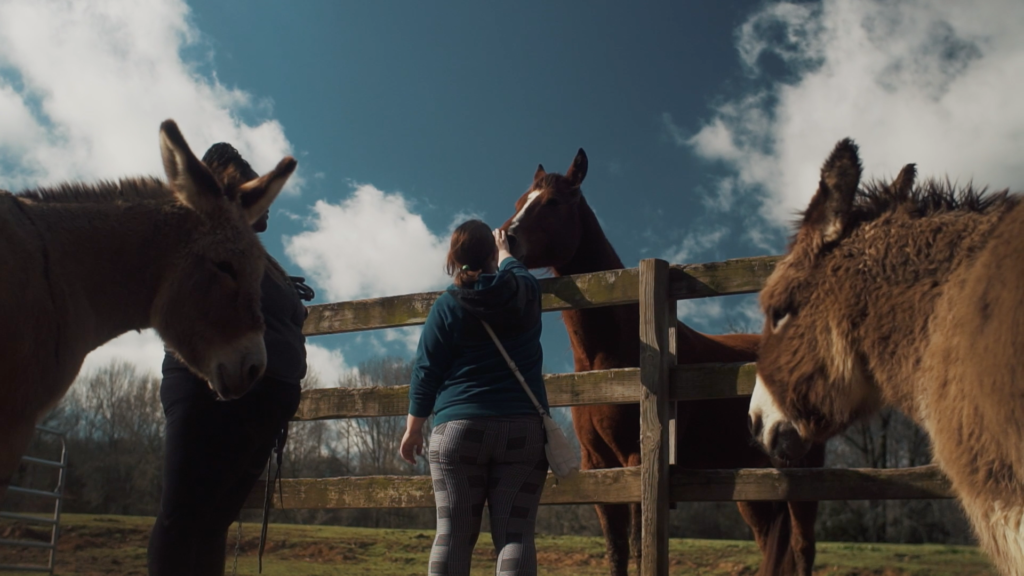
Tele-health During COVID19:“This is an especially difficult time for victims of domestic violence, sexual assault and human trafficking, as their pathways for escape are fewer. Additionally, the isolation that we’ve all suffered during this time can be particularly dangerous to the clients we serve. We are beyond grateful for our four amazing and dedicated therapists!” Sandy Middleton, Executive Director
Pictured in the photo are: Meg Brown, LCSW; Taylor Patterson, PLPC; Melinda Swinney, LPC, LSW; Angela Alford, LMSW
